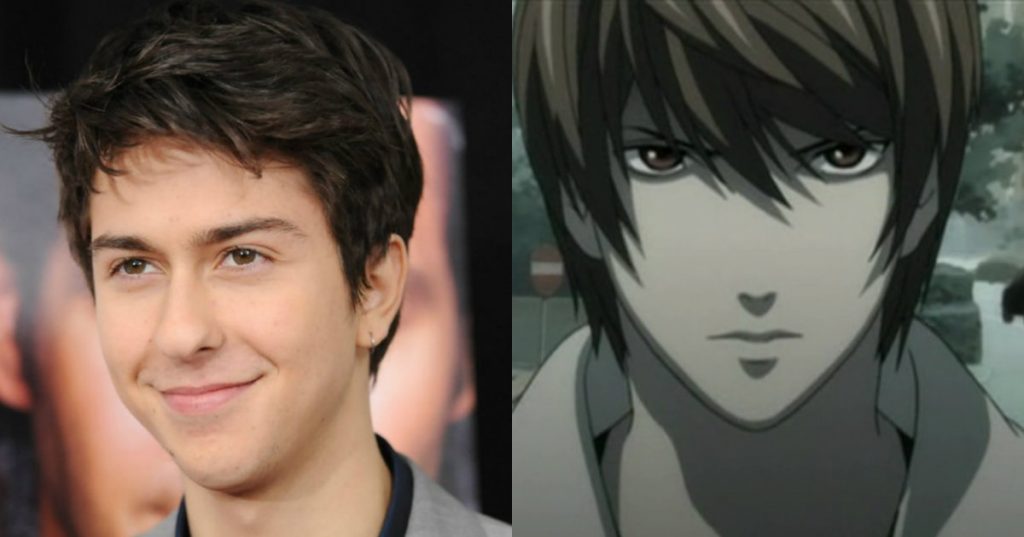
Americanized Netflix adaptation alienates many fans
By Caroline Ho, Arts Editor
The live action Netflix version of Death Note is leaving fans increasingly baffled and outraged over the film’s largely American cast and setting.
The remake of the super-popular manga and anime is set for release on August 25. Netflix unveiled a one-minute trailer on March 22, reigniting the outcry over the adaptation’s apparent Westernization—an outcry that first started building up since it was revealed in fall of 2015 that the film will star Nat Wolff, best known for his acting in young adult novel adaptations The Fault in Our Stars (2014) and Paper Towns (2015), alongside Margaret Qualley.
Death Note took the world by storm when the manga was first published in 2003, with an anime following in 2006. The plot features 17-year-old Japanese high school student Light Yagami as he comes into possession of a notebook that allows the wielder to kill someone by writing their name. Incredibly gifted and incredibly bored, Light decides to use the notebook for the idealistic purpose of bettering the world by killing criminals. Meanwhile, the mysterious and equally brilliant detective L tries to identify and apprehend the supernaturally-powered vigilante, who comes to be known as “Kira.” And now this 12-volume (or 37-episode) battle of morals and wits is being transposed to Seattle, Washington.
Whitewashing foreign media for a Western audience is not an issue exclusive to manga and anime. Controversy has been especially prevalent lately with the recent release of Ghost in the Shell, another movie based on a manga with Scarlet Johansson in the lead role of a cyborg. One could go on and on about the endemic problems of underrepresenting Asians and other visible minorities in Hollywood, but the Americanizing approach seems even more problematic and bizarre in a story as culturally-specific as Death Note.
First off, that concept of (white) schoolkid-turns-mass-murderer instantly has many more connotations in the US. Even beyond that, it’s hard to imagine Light, played by Wolff, as an American surnamed Turner. In the manga, Light’s character is heavily shaped by Japanese cultural expectations and by his relationship with his police chief father (Shea Whigham in the film). In Japan, families place a huge amount of pressure on academic performance, and family dynamics are strongly rooted in respect and tradition. This isn’t to say that elements of these dynamics aren’t present outside of Asia, but in North America we have a context of very different societal norms, and it seems the film will have to take a very different approach to the cultural pressures influencing Light’s personality.
The rest of the cast is also perplexing. The main female character Misa Amane has been turned into Mia Sutton (Qualley). Misa/Mia is a famous model, actress, and pop idol, but at least celebrity worship seems fairly culturally ubiquitous. After witnessing the male and female leads cast as white actors, it was something of a surprise to find that the eccentric genius L is played by Keith Stanfield, who stars in the TV series Atlanta. Seeing a black actor cast as L is at least a placation to anyone appalled at the thought of an all-white Death Note.
L’s invaluable assistant Watari is played by Paul Nakauchi, so the film will feature some Asian presence on-screen, albeit a character whose sole purpose is support. Masi Oka also has a role, although his part is still unannounced. One casting that does seem appropriate is Willem Dafoe, who has the perfect oddly-spaced eyes and distinctively goblinlike face to play the Death God Ryuk (although according to IMDB, Dafoe is only the voice).
Ryuk’s character brings up a whole new problem of cultural transposition with the Death Gods, or Shinigami. They’re a part of traditional Japanese folklore without an obvious American parallel, and it’s hard to imagine Shinigami meshing with the North American setting without feeling like some quirky and trite ghost-spirit-companion-thing. Another point of potential incongruence arises in the nickname “Kira”—the Japanese pronunciation of the English word “killer.” In the manga, the figure known as Kira gains a worldwide cult-like following, and while this might still stand in the American remake, the name loses a lot of its power without its international connotations.
In a statement to the website Collider last June, the movie’s producers (both of whom are Asian) called the story one of “moral relevance—a universal theme that knows no racial boundaries.” The concept, maybe, but it will take a lot of stretching to adapt the story and the characters to an American context. A lot of fans are clearly not in favour of this imaginative leap; an online petition to boycott the movie already has, as of April 1, about 15,000 signatures.
Supporters of the upcoming Netflix film might point out that Japanese live action versions of Death Note already exist. The manga was adapted into a series of four live action films, the first two of which roughly follow the original storyline, taking place between 2006 and 2016. Death Note was also made into an 11-episode live action TV drama in Japan in 2015. A Westernized Hollywood version will at least be a different approach from these earlier adaptations.
However, there’s absolutely no reason why “Westernized” has to mean “primarily non-Asian,” especially when that choice drives away so many potential fans. Spoiler alert: Asians live in North America, too.


